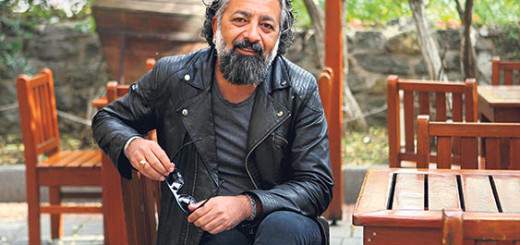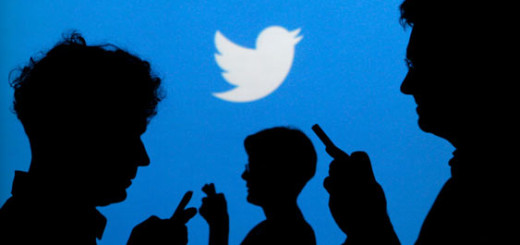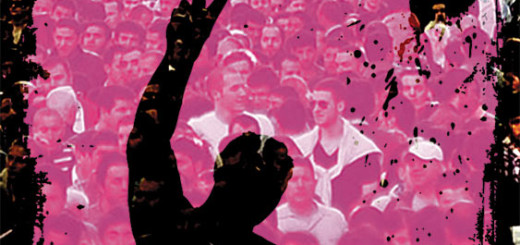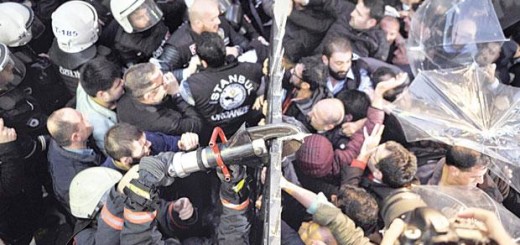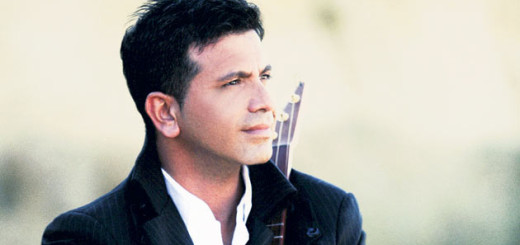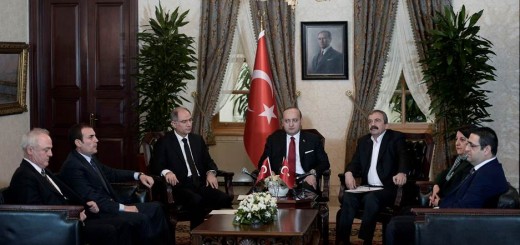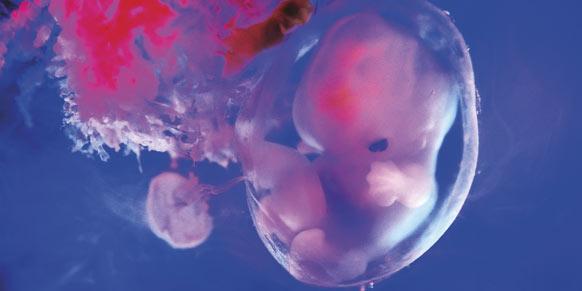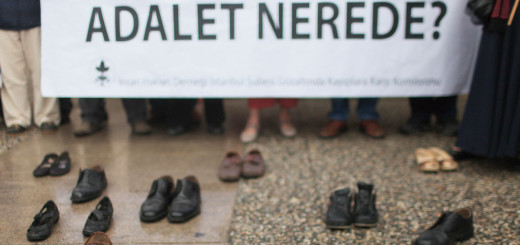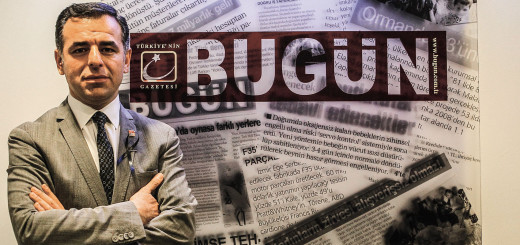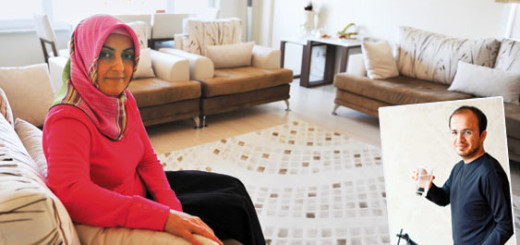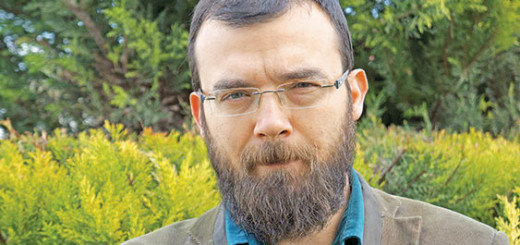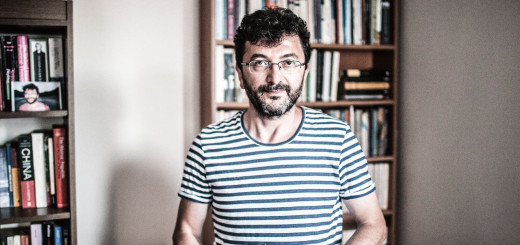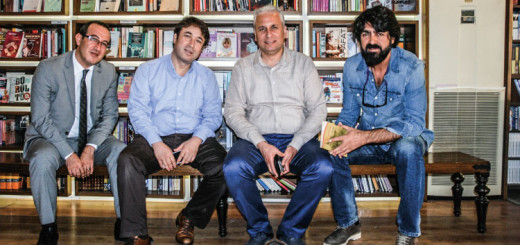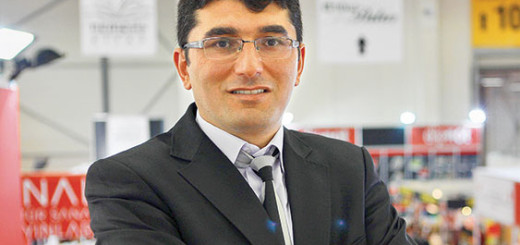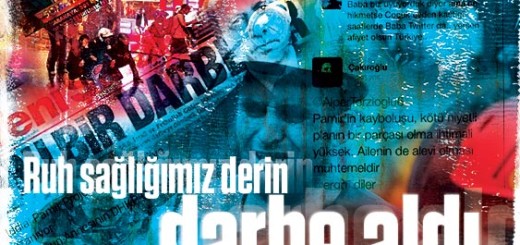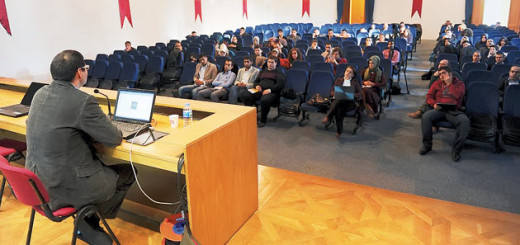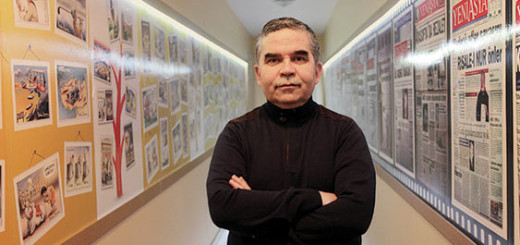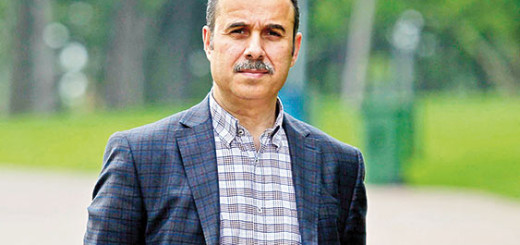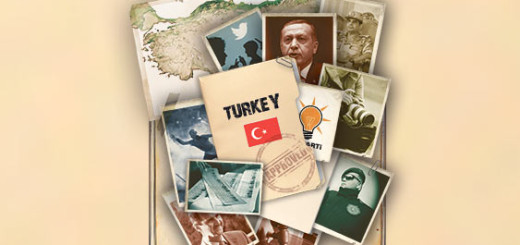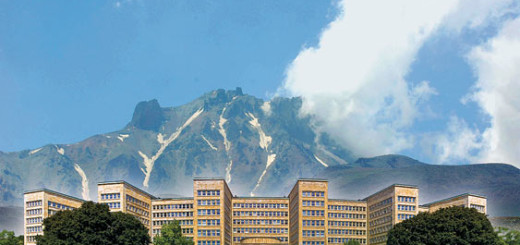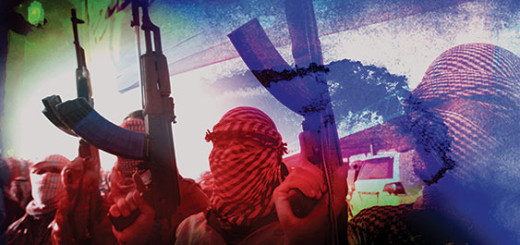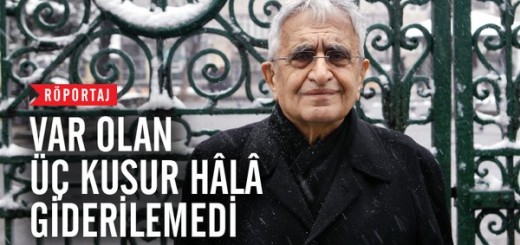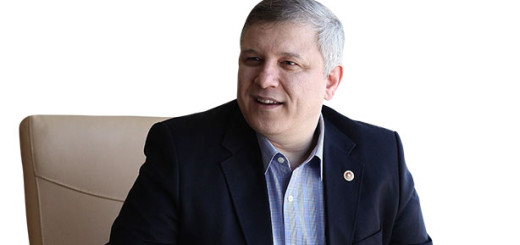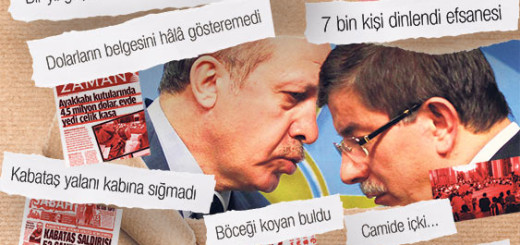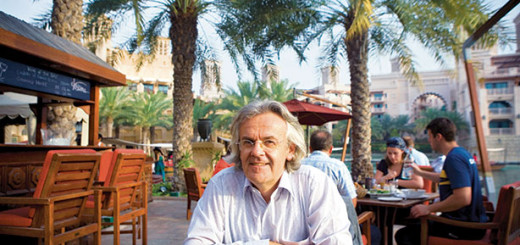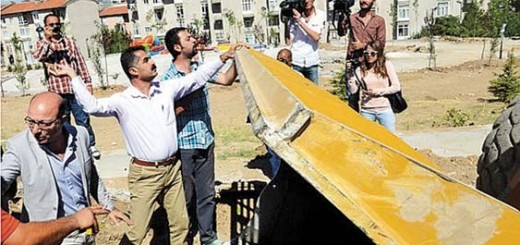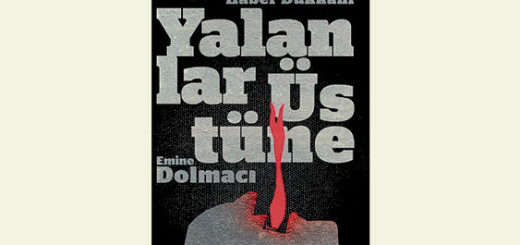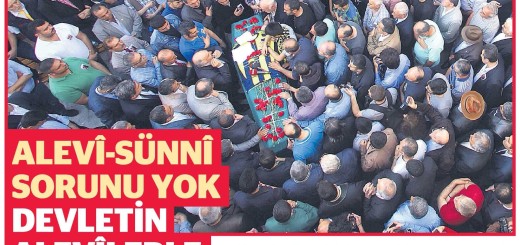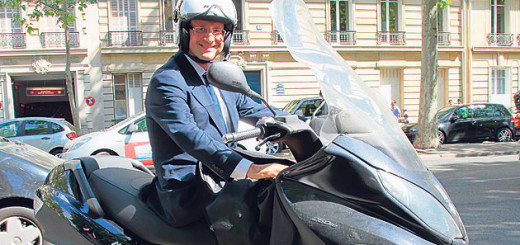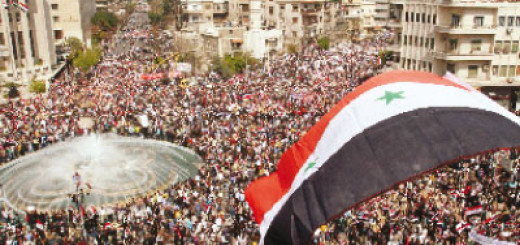
Yavuz Baydar (Photo: Today’s Zaman)
Saying that there is no one he has encountered who believes in Turkish Prime Minister Recep Tayyip Erdoğan’s oft-repeated notion that there is a “parallel state” in Turkey, Baydar explains how Erdoğan’s vow to eradicate Twitter will not stop the Turkish people from being silenced.
The timing of the European Press Award is meaningful. Why did they give you this award?
One really needs to ask those who awarded it. But it is quite clear that the award was not given only to me. I mentioned this when I accepted the award. This award goes to those colleagues of mine who have worked for years to protect the honor and integrity of journalism in Turkey, who have tried to stand up for basic social, communal and ethical rules that guide us; this award goes to the more than 200 colleagues of mine who lost their jobs by being summarily fired from their positions. This award is for colleagues such as Hrant Dink, who lost their lives.
Does the award have any other inherent message?
What lies behind this award is the general vista of the Turkish media — known throughout the European media sector as being the most “swanky” of medias — in its current state of having been emptied of content and, in the process, left devoid of meaning. Mainstream publication directors, editors, chiefs and reporters — all hired because they have accepted working according to the interests of the bosses at the helm of these various media organs — all follow and display the now deep-rooted self-censuring culture we see everywhere, which means the vista is filled with lots of swanky but ultimately empty opinions. In other words, it’s a colorful media, but one altogether lacking in content. Really, the media sector ought to be defending the profession of journalism; it needs to do something to protect and defend the honor and dignity that should be a part of this profession.
The legitimacy of taped conversations
Taped phone conversations that allegedly include the prime minister have allowed us to witness apparent interventions at media outlets owned by the Ciner, Doğan and Demirören Groups. But at the same time, we have seen an argument take hold within the media based on questions like, “Are these taped conversations even legitimate, or legal; what are they?” How do you view these arguments?
There is no substance to these arguments. There is a ridiculous stance that claims, “These recordings are illegal and there is a court order banning their broadcast. We cannot publish these legally ambiguous recordings.” In Turkey, journalism hasbecome detached from its own rules on ethical behavior. Of course conversations between people are important in terms of their privacy. But there is also a factor that comes into play called “the public interest.” If one takes the idea of privacy, and then talks about journalism using this privacy as a point of departure, it’s ridiculous. We are talking about legal investigations here. There are also all sorts of documents being followed up on by prosecutors. In addition, there are taped conversations in which journalists play a role. And this is, in fact, what makes the whole situation so complicated. When these taped conversations that included certain journalists began to emerge, journalists began to yell even more loudly than the politicians. I’m not even necessarily saying that the journalists caught on these tapes are guilty. But the prime minister personally verified some of the conversations he had with media heads. I look with suspicion on those who decide to ignore the prime minister’s stance on certain topics, like when he says, “What of it if I said that?” I find their style of journalism suspicious. We are obliged to tell the people of the country everything we can: the naked truth.
There is a mafia style silence that reigns in the media here.
Some say we are nearing an era of “Alo Fatih,” or “Alo Mustafa.” What do you think about this?
We have all now seen who is being oppressed and in which ways, and whether or not they resist their bosses and on which topics. In our media, there is a mafia style rule of silence that reigns, especially among top-level employees. The traditions that exist within our state have now taken hold in our media. The arm might be broken, but it stays hidden within the sleeve.What we see is that political culture has [contaminated] media culture.
With restrictions against freedoms and poisoned water being poured onto the roots of the media, the justice system, and the police forces, why is it that the larger pool of media sources — rather than informing the public about what’s going on — instead takes [the government’s] side and works to provoke people against one another?
The media in Turkey has always been of one or another particular political disposition. It has always been a part of propaganda. It was designed this way, and it has preferred to remain this way. At the start of the 2000s, when the AK Party [Justice and Development Party] came to power and the accession talks with the EU began, there was talk of a series of reforms that would save the media from these chains, that would make things easier.
What sorts of reforms?
If Turkey is really ever to attain democracy — a situation where everyone has their rights, their freedoms and a constitution that guarantees all this — the pre-condition to attaining this is an independent and free media. A priority herein and a way of attaining this pre-condition would be putting an end to the use of TRT [the Turkish Radio and Television Corporation] and certain other networks [that are] some sort of trumpet boys for the state — for decades now, this is how the TRT has been used, and it’s been so damaged from this. [We should turn them] immediately into public broadcasting channels like the BBC. It was mentioned many times, over and over at government meetings at which I myself was present, that someone was needed at the helm of the TRT who was interested in nothing [more] than being great at journalism. It was noted herein that if this did not happen, Turkey would definitely return to its old argumentative days, chasing its tail around in circles. Another important point in terms of press reforms in Turkey would, of course, be the strengthening of professional syndicates. One of the first pieces of business carried out by some of those who entered the arena of media from other sectors has been to break down the syndicates within this profession, to eliminate the labor syndicates from work places. Being a member of a syndicate has become a risk factor within the media. According to data we have, right now in Turkey, out of some 14-15,000 journalists, only 1 percent dare to be syndicate members. When we hear about collective rights, we need to stop and think. We do not see any solidarity movements when a colleague of ours loses his or her job. The people that populate this profession are living in fear. This in turn leads to an increase in worry, and to a narrowing of editorial independence. When in Europe a journalist of any particular stream of thought is met with oppression, all journalists can get together and protest in the name of their colleague.
All right, so why does this not exist in Turkey?
There is no uniting platform for us; this is why it doesn’t exist. The present structures in place are insufficient. Most of the structures in place are clustered along ideological fault lines. So some [people] support some matters, [and] others look coldly on other matters; it’s very mixed.
They want dirty profit cogwheels to turn
Are journalists, newsmakers and editors being tested with the truth in Turkey?
Absolutely. And this whole situation has to come to an end. All media workers in Turkey have already passed enough exams as it is. We are at the end of the line now. There needs to be an exit from here. Transparency has not been attained in the ownership of the media. And two important chapters needed for this were never even opened in EU accession talks. While many other sections like public bidding tenders and social rights were blocked by [members] like France and South Cyprus, it was actually Ankara itself that failed to open these two chapters in the talks. And they announced that they had been quite intentional in not opening up these sections of the talks.
So why were these sections not opened up in the EU talks?
Because, from the moment these chapter section talks [would have] opened, the ties between those with political power in Ankara — including, of course, the prime minister and other government ministers — and the media bosses of İstanbul who look upon journalism with absolute disinterest, [except] in its monetary aspect, would disappear. In fact, they all want this dirty profit cogwheel to keep turning. For years now, we have worn ourselves out repeating over and over how in no democratic country in the world does such a media run under such a system. But if they insist that we move ahead with such a system, we can never be a democratic country. And if democracy is not our aim, then we are going to be no different than any country in Central Asia.
Do you agree with opinions voiced lately that “during the Erdoğan era, it has been seen that democracy and Islam do not mesh”?
I do still believe that religion can exist within politics, but to what measure? That’s the important part. What is the reasonable measure? What is being questioned herein is the relations between democracy and Islam, and between ethics or morals and politics. Everyone is worried about this topic. We ought to have seen that this would not happen through the AK Party, whose lifespan is over. The AK Party is a political movement that rose out of Islam. And so, there were some who thought perhaps this party could stand as an example for Turkey, which had been damaged by those people called immoral in the past. But now we are at the point of bankruptcy. Turkey did not deserve this.
Could it be that one day in Turkey, a party of Muslim democrats — like the Christian democrats of Europe — might emerge?
The era of religion-driven politics is over. If you try to impose on people what they should think, what they should believe, what lifestyle they should have, if you try telling them things like “I’m banning alcohol on the orders of our religion,” all you wind up doing is carrying out a kind of social engineering that not only turns your country into something other than a country of law, but you also make people [cold to] religion. Which is how people have arrived at this point. We are in the midst of darkness. I look at both Egypt and Tunisia. What unfolded in Egypt was like a sped up film. The Muslim Brotherhood was not even equipped for leadership. But what I see in Tunisia is different. [Rashid] al-Ghannushi’s stance of embracement makes me envious. We should have been in a spot way, way in front of that country. But unfortunately, what we have seen in Turkey is just how empty our leadership is, just how many different intentions there really are and just how close evil really lurks to all of this. The word “evil,” by the way, is not one I use very often. But right now, this is the direction things are taking. There is an evil seed of politics, out of which nothing good can spring.
You speak as though moral politics springing from a good seed may never come to this country…
In Turkey, there is a silent majority that is aware of everything. I believe in their awareness and their determination. I do think that, in general, people are in possession of enough conscience, reason and experience not to accept a new kind of authority that is full of such immoral oppression. Another advantage right now is that Turkey has before it three elections in a row. In other words, it has three different opportunities before it. I do believe that those who have mapped out evil for Turkey will be punished by those who know what is right and what is wrong.
I took risks, and was fired twice
In which direction will the threats to close down Facebook and YouTube, or the newly passed Internet law, ultimately take Turkey?
In a country like Turkey, to restrict access to obtaining news is very difficult. With its economy, Turkey is part of the global system. The Turkish society, and the younger generations in particular, make great use of social media. When one looks at the data on this front, one sees we are [amongst the] world champions in Facebook and Twitter usage. These are factors that show us that Turkish society will not be plunged into silence. You can suppress these things, [but] the more attempts to drown these factors there are, the more civil resistance there will be. Society has its own inner dynamics. A return from this direction is impossible. I would [have liked] to see the president, himself a serious user of social media, come out more strongly and clearly against the Internet law, and to illuminate the future for us on this front. Unfortunately, though, he did not really pass this particular test. And this lost him serious points, a fact of which he is aware.
What should journalists do in the face of oppression?
Risks need to be taken. I myself have taken many, and have been fired twice. In 2004, I was fired by Aydın Doğan. And in June of 2013, [I was fired] by the boss of the Sabah newspaper. We are in the midst of bad days. I know precisely what those who have been fired are experiencing; this is why I tried to call as many as I could to express my sympathy for their situations. There needs to be an oral history prepared about what has happened. What has occurred in the past 20 years, who did what, how the censure went, how we auto-censured ourselves, which news stories we didn’t see, how we distorted things, who we wound up hurting and victimizing. Our job is to tell people things, not to tell lies. It is the job of ruling parties to tell lies. Journalists need to be able to take all this on.
How does Europe view the direction Turkey is taking, and the state of its media?
When it comes to the media, there is a great sense of hopelessness, and a deep sense of worry. The most recent taped phone conversation, which reveal the extent of this prime minister’s intervening and belittling stance when it comes to others, has horrified our colleagues in America and in Europe. They call it a “reality never before seen.” As for the political situation, the view on this is also [one of] worry. They see the situation here as parallel to the rising authoritarianism in countries that surround us.
Do they believe it when the ruling party asserts, “Everything has been done by the parallel state”?
I have actually been quite insistent in asking foreigners, “Do you believe the rhetoric about a parallel state, phantom structure or interest lobbies?” I have not yet met anyone who was convinced of these claims. They say, “We need to see some persuasive evidence of these things that we’ve been [hearing] now for two or three months.”
What sort of organization is P24, what purpose was behind its creation?
There is a very serious division in ranks between professional organizations. So, when we formed P24, it was really with the aim of creating a watchdog for the media. We prepare reports on the work done by the Turkish media — which pieces of news it sees or does not see and what the notable problem points are. We also do research on a variety of topics, with the goal of educating our younger colleagues as well. We have channeled a range of resources that have come in through the EU toward journalism education at a certain university in Turkey. We also started the election bus project, which has allowed both national and foreign colleagues of ours to observe and take the election pulse in Turkey throughout the month of March. They observed things in the south, then they headed for the eastern part of the Black Sea region. Now they are headed for Urfa, Diyarbakır and Batman. And if we have in any way helped our colleagues who lost their jobs during this difficult period, then all the better.
